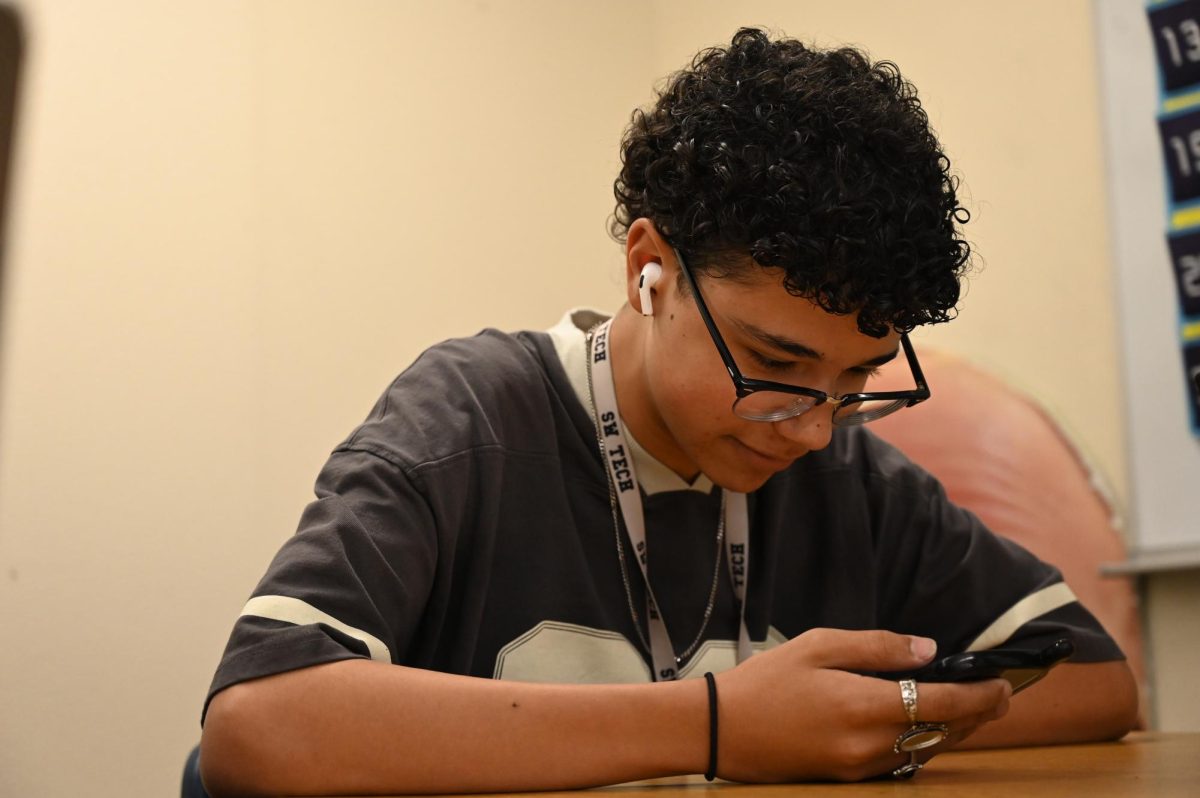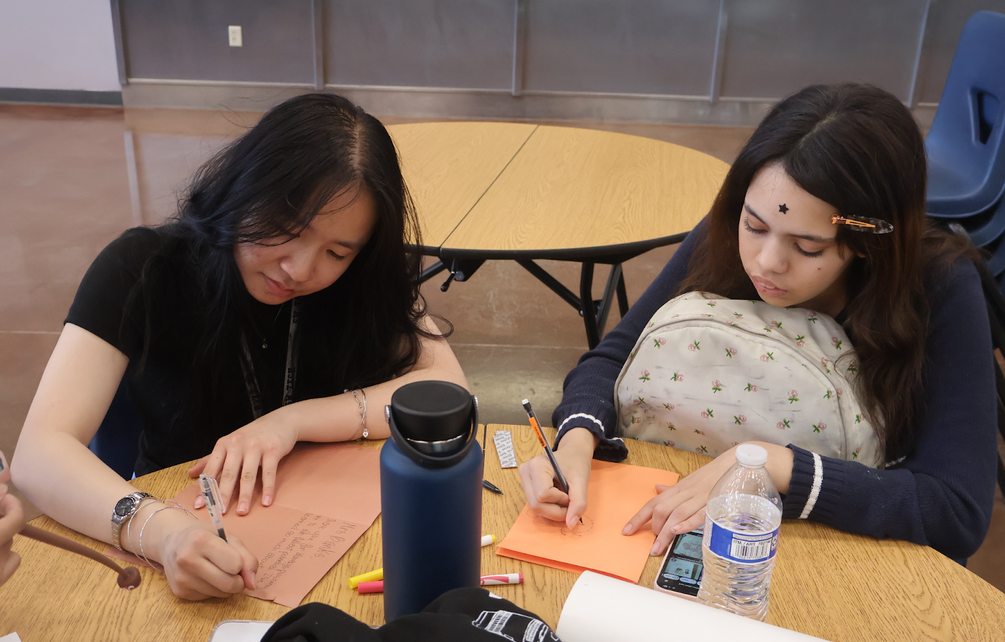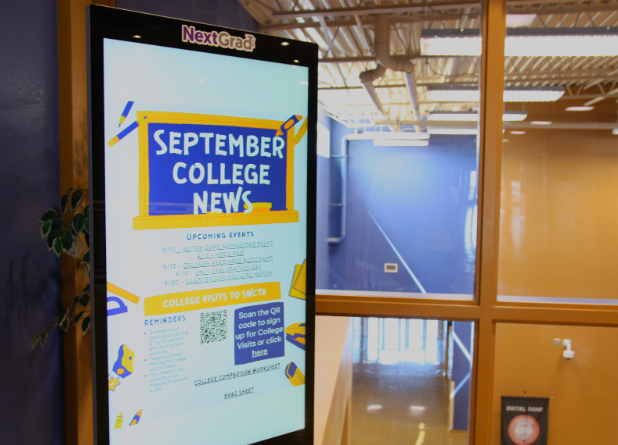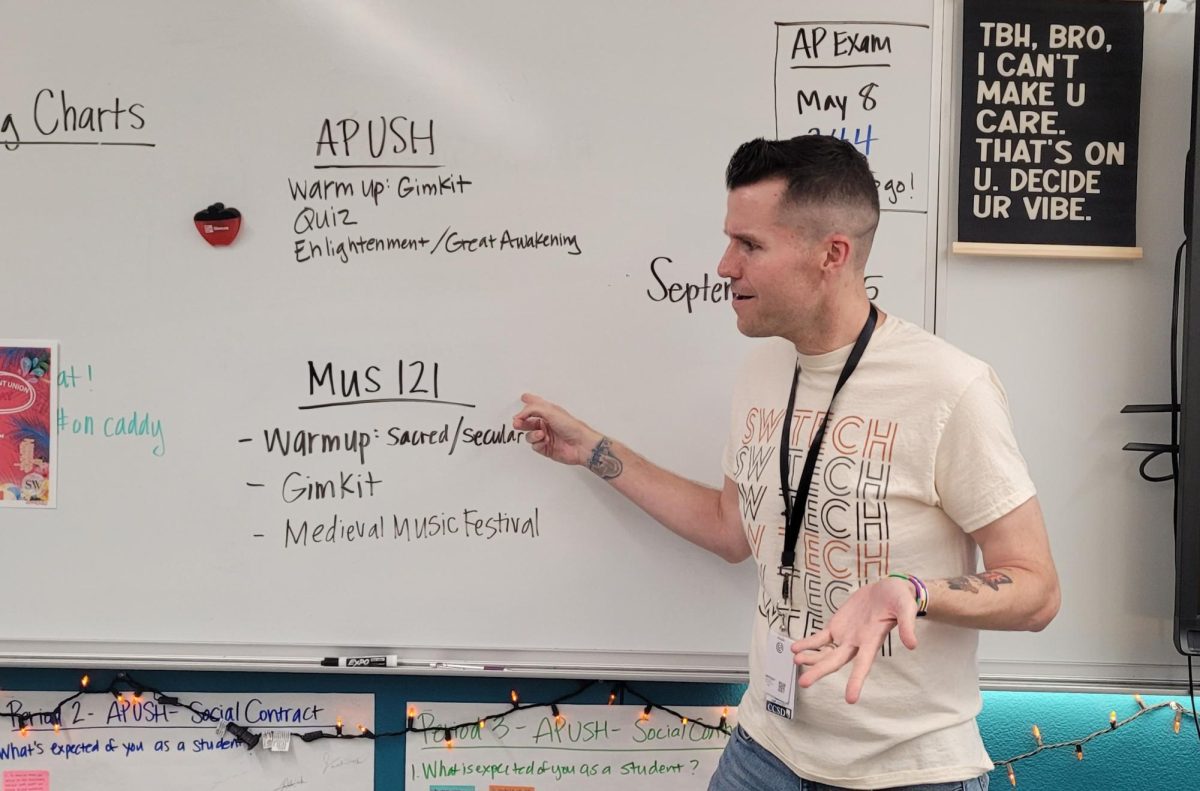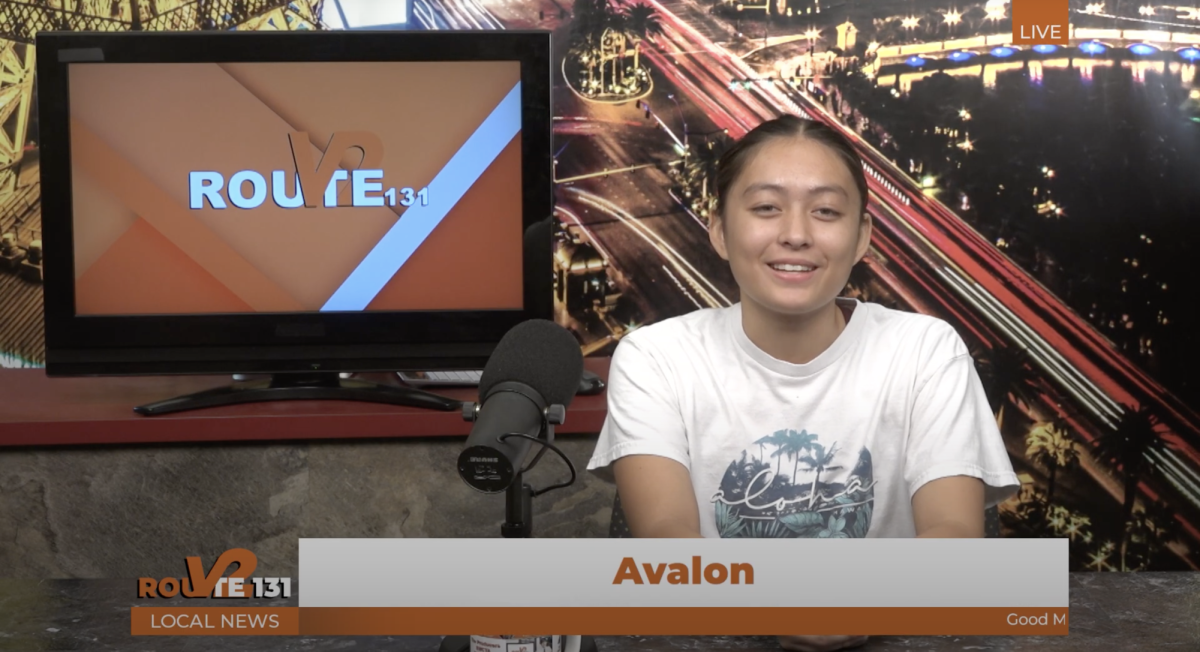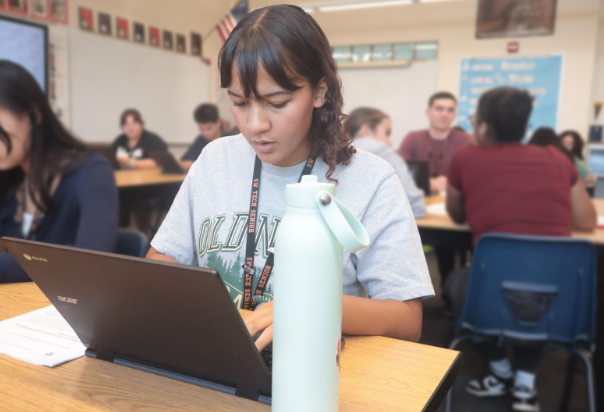As they do small tasks around school like putting up umbrellas in the morning, stacking chairs in the cafeteria and learning how to make coffee, students in the POST/PACE programs are learning basic skills needed for their future careers.
“[In] the POST program, we’re working on life skills and pre-vocational skills,” POST teacher Allenda Zionch said. “Following routine [and] following directions, those things are why we push in the chairs after second lunch.”
Both POST and PACE programs are for students who have already graduated high school with an adjusted diploma. PACE is more rigorous, for students who may have a higher skill set than those in POST; however, both are for individuals with cognitive disabilities.
“What they do in the cafeteria is they learn work habits, just what that type of work is about,” POST teacher Lori South said. “The school really goes by the CTE [and]career readiness expectations. We have [those expectations], but it’s more life-centered.”
Students in POST/PACE have the opportunity to practice life skills on campus, doing simple, repetitive tasks to prepare them for entry-level jobs. Since some of these tasks include cleaning the cafeteria, the lunch tables or dusting the lockers, it’s a common misconception that the administration force them to pick up around the school and do janitorial work.
“I really love to follow my teacher’s directions to do work jobs,” POST student Iokepa Andrade said. “I like to get my grades up.”
Since all of the students have graduated high school, they are all learning skills needed for entry-level jobs in the four years that they can stay in the programs, before completing the program at 22. By cleaning the cafeteria, the students are able to gain knowledge in building maintenance and what it takes to become an office assistant.
“Once [a student is] given a routine or shown what to do, he can do it and will not forget it and he is always on time,” South said. “So, what they’re able to do is based upon their likes and dislikes, their basic personality.”

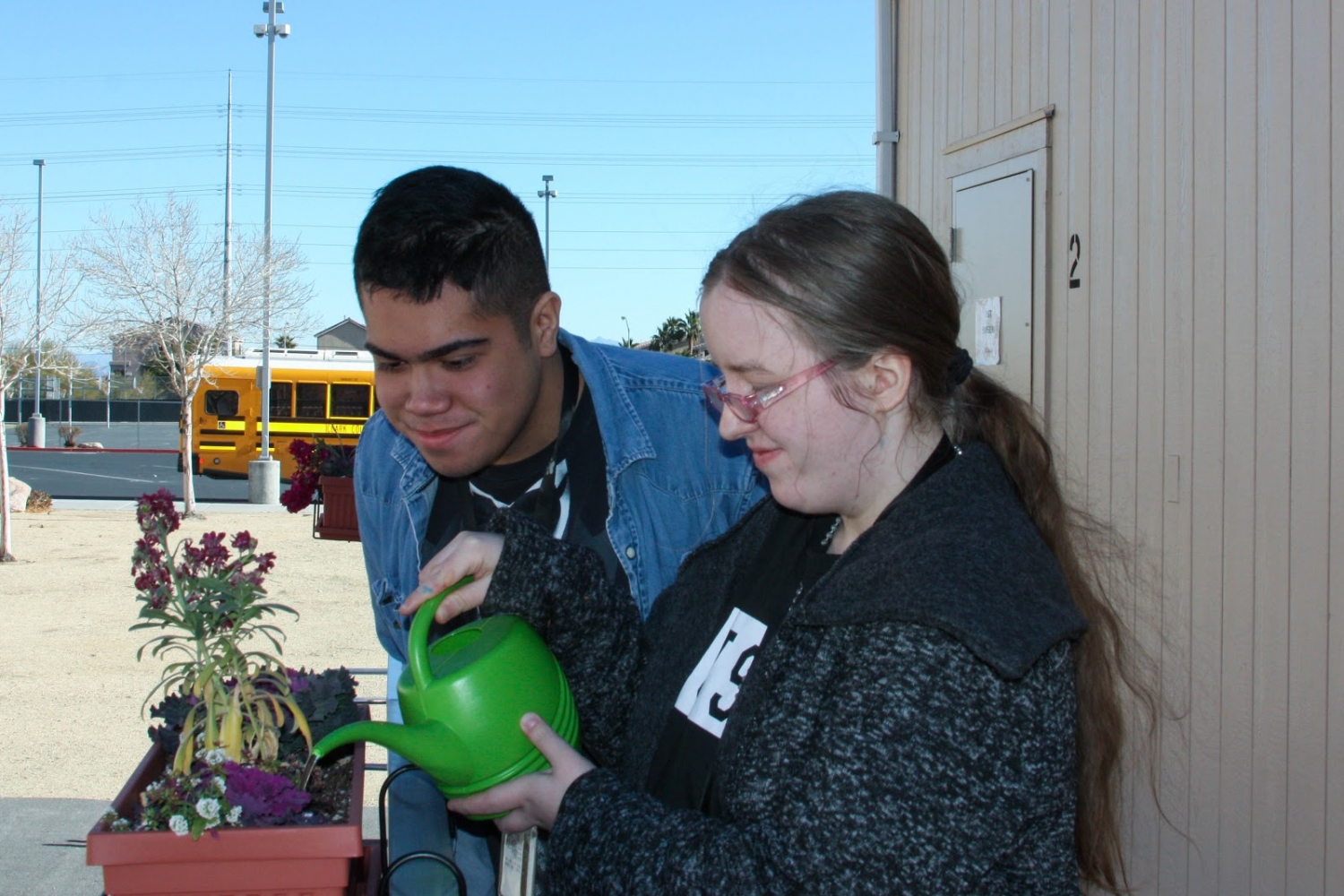
![“I’m most excited for the [Homecoming] spirit week,” senior Jada Dejesus said. “I think it’s really fun to dress up …especially as a senior. I plan on going all out every spirit week this year.”](https://southwestshadow.com/wp-content/uploads/2025/10/IMG_0449-1200x900.jpeg)
